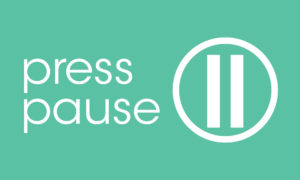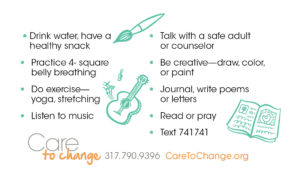Marcia’s at her wits’ end. She knew raising a teenager wasn’t going to be easy, but Good Lord, this is just exhausting. She held out hope that things would get better after middle school, but that hasn’t happened. Everything has become a struggle. Lately, it’s been a fight every morning before school. Her daughter says she can’t go, just can’t do it. The drive to school is either completely silent or filled with crying or screaming. And on the days she gets her to school, there’s often a call from the school nurse in an hour or two saying she’s vomited or has a migraine. She’s tried bribing her, she’s tried punishing her, and she’s tried just going along, and nothing seems to work. Is this what all teenage girls are like?
At one level, anxiety is perfectly normal. It’s how our bodies react to stress, and at times, it helps us. Anxiety triggers stress hormones that give us extra energy or strength to make it through challenging situations. Just like adults, teens experience anxiety now and again, and it may range from being a bit apprehensive to something approaching a feeling of panic.
However, anxiety can be severe and pervasive enough that it begins to interfere with our daily activities and relationships with those around us. It seems the number of teens who experience that degree of anxiety has been on the increase in recent years. The National Institute of Mental Health has said around one in four 13- to 18-year-olds suffers from some kind of anxiety disorder, with about 6 percent having what we refer to as a severe anxiety disorder.
Add in the mix of hormones streaming through adolescent brains, and teen anxiety can be frustrating for parents and kids alike. In most cases, the best response is a deep breath and the knowledge that as with so many other difficult aspects of parenting, you’ll both survive these moments and grow stronger from them.
But Marcia’s daughter is exhibiting symptoms of more serious anxiety. When we start seeing signs such as a withdrawal from social interactions with friends, sudden drops in school performance, unexpectedly quitting beloved hobbies and activities, frequent migraines and other headaches, mysterious illnesses, difficulty sleeping or getting unusual amounts of sleep, or problems with eating, the anxiety may demand more than parental patience and prayers.
That’s when seeing a professional counselor may be beneficial. First, a counselor is trained to diagnose serious anxiety, so he or she can determine whether there’s a real concern. More important, a counselor can give both of you practical steps to cope with the anxiety. One of the tools we use are what are known as Press Pause cards. When a teen or an adult is feeling anxious, looking at the cards can help them shift to more positive emotions and responses. In some cases, medicine may be beneficial. While our professionals cannot prescribe anti-anxiety medicine, we do work cooperatively with doctors who can consider our recommendations.

 Sometimes, teen anxiety is the result of situations within the family. It may be triggered by tension between the teen’s parents or result from well-meaning parents putting unreasonable pressure for academic or athletic performance on their children. Here again, a professional counselor can restore a sense of balance, helping parents improve communication or convey hopes and dreams in more constructive ways.
Sometimes, teen anxiety is the result of situations within the family. It may be triggered by tension between the teen’s parents or result from well-meaning parents putting unreasonable pressure for academic or athletic performance on their children. Here again, a professional counselor can restore a sense of balance, helping parents improve communication or convey hopes and dreams in more constructive ways.
Is your teen suffering from severe anxiety? There’s no magic answer, but if you’re seeing a significant impact on his or her life, or on your family’s well-being, please consider making an appointment with a counselor who works with teens. You may discover that what you’re seeing is perfectly normal, or it may require more attention. Either way, you’ll have a better understanding of what’s going on, greater peace of mind, and the opportunity to strengthen your relationship with your child.
More about Jean here